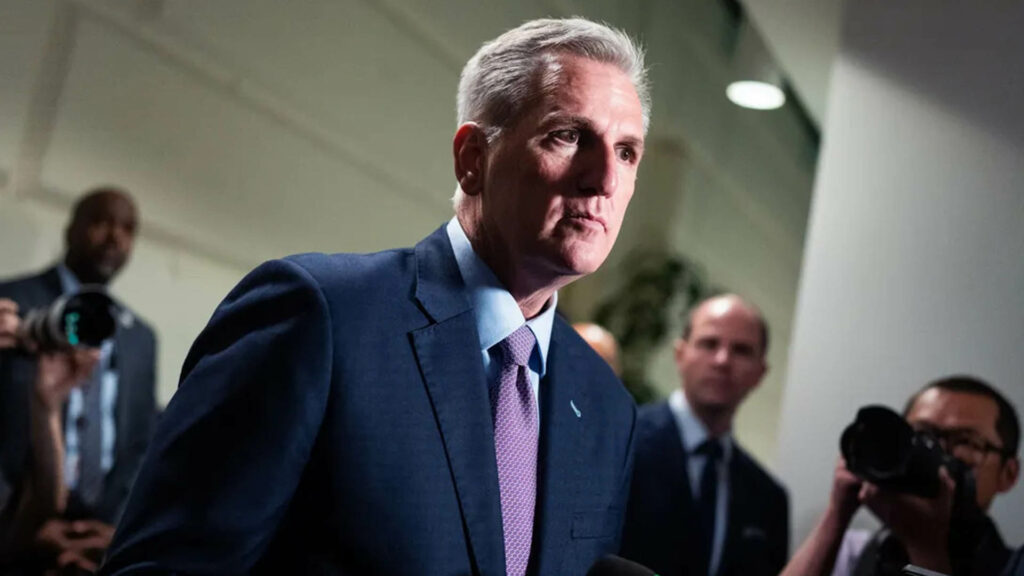
Newsletter Subscribe
Enter your email address below and subscribe to our newsletter

Enter your email address below and subscribe to our newsletter

In a shocking turn of events, Matt Gaetz has successfully ousted Kevin McCarthy as Speaker of the GOP. Find out more about this leadership shake-up here.
| Getting your Trinity Audio player ready... |
In a historic political development, Representative Matt Gaetz (R-FL) has successfully ousted Kevin McCarthy (R-CA) from the position of Speaker of the House. This dramatic turn of events follows a series of contentious decisions and accusations within the Republican Party.
The catalyst for this shake-up was the House's recent passage of a temporary government funding measure. This move was notable because it lacked the spending cuts and border funding that many conservative members, including Gaetz, had been advocating for.
McCarthy, as Speaker at the time, allowed this vote to proceed, which drew the ire of his more conservative colleagues.
Furthermore, Gaetz accused McCarthy of having orchestrated a secret side deal with President Joe Biden and Congressional Democrats concerning Ukraine funding. This allegation added fuel to the fire, intensifying the rift within the Republican Party.

Following the vote to vacate McCarthy's position, the designated Speaker pro tempore moved to adjourn the House.
Now, Republicans are set to convene and initiate the process of selecting a new Speaker. It's worth noting that House rules do not prevent McCarthy from being renominated for the Speakership.
Several prominent Republican representatives have emerged as potential candidates for the role of Speaker.
These include Ken Buck, Byron Donalds, Tom Emmer, Steve Scalise, Jim Jordan, Mike Johnson, and Jodey Arrington. Interestingly, there has even been speculation about the possibility of a non-member of Congress, such as former President Donald Trump, assuming the Speaker's role.
In retrospect, McCarthy's journey to the Speakership has been marked by challenges. After Republicans regained the House majority in the 2022 mid-term elections, it took 15 rounds of voting for him to secure the position.
McCarthy's victory came at the cost of making several significant concessions to appease House conservatives. The subsequent perception of House leadership violating these concessions has played a role in the push for McCarthy's removal.
This political upheaval within the GOP reflects the ongoing ideological divisions and power struggles within the party, which could have ramifications for legislative priorities and the business community's interests.
As the situation evolves, the future leadership of the House and its potential impact on business-related policies will be closely watched by political observers and stakeholders alike.